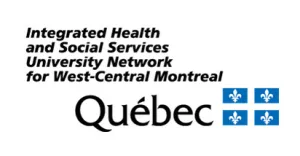CPN-PREV PARTNERSHIPS
CPN-PREV has partnered with various institutions, research affiliates, and community organizations, in order to better understand the complex nature of radicalization and violent extremism and to provide effective recommendations and practices in the field.
We are proud to acknowledge our partners as the following:
The CIUSSS West-Central Montreal has been named a University Institute with Regard to Cultural Communities by the Ministry of Health and Social Services. As a University Institute, CIUSSS West-Central Montreal and its research centre SHERPA have the mandate to support the development and mobilization of knowledge in matters of social and health intervention in a multiethnic context. In this regard, CIUSSS West-Central Montreal is a recognized reference in health and social services in the field of interculturalism.
Hedayah was created in response to the growing desire from members of the Global Counterterrorism Forum (GCTF) and the wider international community for the establishment of an independent, multilateral center devoted to dialogue and communications, capacity building programs, research, and analysis to counter violent extremism in all of its forms and manifestations. Hedayah aims to be the premier international center for expertise and experience to counter violent extremism by promoting understanding and sharing good practice to effectively serves as the true global center to counter violent extremism.
The Organization for the Prevention of Violence is a community and expert-led non-government organization. They are engaged in research and prevention-based activities that aim to mitigate violent extremism. In pursuit of this goal, they work closely with communities, human service providers, and all levels of government.
The Canada Centre for Community Engagement and Prevention of Violence (Canada Centre) provides national leadership on Canada’s efforts to prevent radicalization to violence. Housed at Public Safety Canada, the Canada Centre works with all levels of governments, not-for-profit organizations, communities, youth, frontline practitioners, academia, law enforcement, and international organizations.
The Research and Action on Social Polarization (RASP, as part of SHERPA) team brings together researchers and partners from various disciplines fields, including education, health, community organization, arts, and policymakers. This partnership is intended to align knowledge production and local issues in a co-construction process in order to ensure a thorough understanding and actions that reflect the systemic aspect of violent radicalization.
The SHERPA University Institute is a research infrastructure funded by the Fonds de recherche du Québec Société et Culture - the Quebec Society and Culture Research Fund – and by the Ministère de la santé et des services sociaux (MSSS) – Ministry of Health and Social Services. Its research and knowledge mobilization activities combine practical and academic knowledge to advance the understanding and support the development of best practices in primary care interventions in a multi-ethnic context.
The SOMEONE (SOcial Media EducatiON Every day) initiative, run by Dr. Vivek Venkatesh, is grounded in public pedagogy and encourages the inclusive adoption of mobile and digital media by members of the public to create alternative narratives to divisive and violent messages propagated by hate groups. SOMEONE’s vision is to build awareness and resilience, create space for dialogue, and combat online hate through projects targeting youth, school and community members, public policy officials as well as the broader public.
The UNESCO Chairs Network builds on collaboration to advance training, research, and program development in higher education. The Canadian Network has 23 UNESCO chairs in 16 universities and one college. Its education, culture, communication, information and natural, social and human sciences projects build capacity through knowledge exchange, promote North-South and South-South cooperation, achieve UNESCO objectives, identify solutions to critical social issues, establish new teaching programs, and accomplish effective and exemplary work.
The Université du Québec à Montréal (UQAM) is a French-language University. UQAM is a dynamic, open, creative university with an international outreach. It is recognized the originality and quality of its programs, its cutting-edge research, solidly grounded in social concerns and its innovation in the arts.
The International Centre for Comparative Criminology (ICCC), established in 1969 through a scientific partnership between the Université de Montréal and the International Society of Criminology, transitioned in 2016 into an interuniversity research center. The ICCC aims to bring together a group of experts in the interdisciplinary study of crime, as well as the processes for regulating criminal behavior, and the intervention methods deployed by public, private, and community institutions in response.











